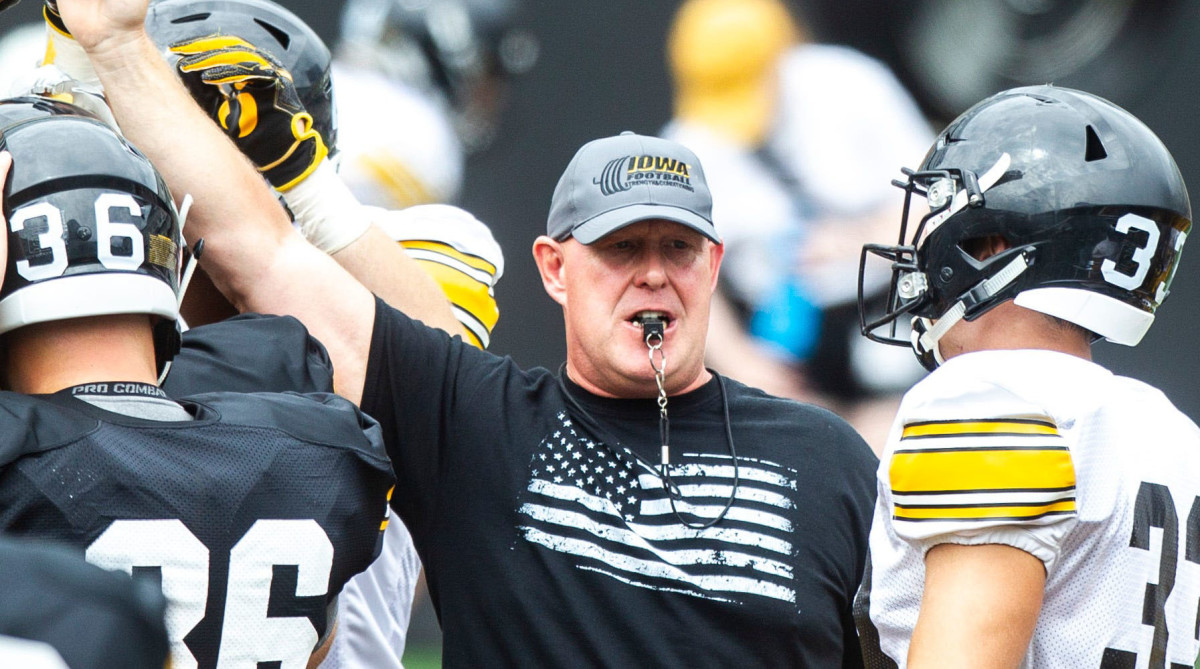Jaguars Assistant Chris Doyle Resigns Day After Hiring
Just one day after Jaguars head coach Urban Meyer announced the controversial hiring of former Iowa strength coach Chris Doyle, Meyer announced Friday night that he had accepted Doyle's resignation, per Mark Long of the Associated Press.
In a statement, Meyer said Doyle's decision to step down came from his desire to not be a distraction to the franchise.
"Chris Doyle came to us this evening to submit his resignation and we have accepted. Chris did not want to be a distraction to what we are building in Jacksonville," Meyer's statement read. "We are responsible for all aspects of our program and, in retrospect, should have given greater consideration to how his appointment may have affected all involved. We wish him the best as he moves forward in his career."
Doyle, 52, left Iowa last summer after allegations of bullying and making racist remarks. He has denied “unethical behavior or bias” based on race, and left with a $1.1 million separation agreement.

Meyer was questioned about Doyle's past during Thursday's press conference and defended his decision to bring him aboard his staff, citing his nearly two decades-long relationship with him, dating back Doyle's time on Meyer's staff at Utah.
“I’ve known Chris for close to 20 years. Our relationship goes back to when I was at Utah and he was the No. 1 strength coach,” Meyer said. “I vetted him thoroughly along with our general manager and owner. Feel great about the hire, about his expertise at that position. So we vetted him thoroughly and sports performance is going to be a high, high priority.”
Multiple Iowa players spoke out against Doyle's actions while leading the football team's strength and conditioning program. Jaguars cornerback Greg Mabin, a former Hawkeye, praised teammates and said on Twitter in June that he hoped bringing the issues to light "can stimulate positive change."
Doyle was the highest-paid strength coach in the country at the time of his departure, and subsequently underwent an independent review “relating to racial disparities within the football program."
The review found that Doyle helped foster a program culture that required "strict conformity and rigid adherence to the ‘mold’ of an ideal player, a mold that many Black players felt they could never truly fit because it was built around the stereotype of a clean-cut, white athlete from a midwestern background."
